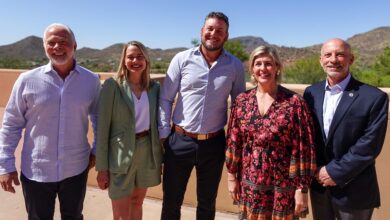
By Gavin Fraser | June 6, 2024
In an era where environmental consciousness is increasingly becoming a societal norm, the hospitality industry stands at a crossroads. Long perceived as a sector of extravagance and opulence, it is now under scrutiny for its environmental footprint. From towering hotels to quaint bed-and-breakfasts, every corner of hospitality is being urged to embrace sustainability as a guiding principle. At the heart of this movement lies the imperative to balance the pursuit of profit with the preservation of our planet for generations to come
Historically, the hospitality industry has been synonymous with indulgence, luxury, and excess. However, the narrative is evolving. Today’s travelers seek more than just lavish accommodations and gourmet meals; they yearn for experiences that resonate with their values. Sustainability has emerged as a cornerstone of this new paradigm, transforming the way businesses operate and interact with their surroundings.
One of the most tangible manifestations of sustainability in hospitality is the focus on food and beverage operations. Restaurants, hotels, and resorts are reimagining their menus to prioritize locally sourced, organic ingredients. By forging partnerships with nearby farms and artisanal producers, they not only reduce their carbon footprint but also support local economies and foster a deeper connection with the community.
The concept of “zero waste” has gained traction, prompting establishments to rethink their approach to food disposal. Through composting, recycling, and innovative culinary techniques, businesses are minimizing waste generation and maximizing resource efficiency. Leftover food is repurposed into new dishes or donated to those in need, ensuring that every morsel serves a purpose.
Beyond culinary endeavors, sustainability in hospitality extends to the built environment. From eco-friendly materials to energy-efficient technologies, hotels and resorts are embracing green building practices to minimize their environmental impact. LEED-certified structures, solar panels, and water-saving fixtures are becoming commonplace, enabling establishments to reduce their energy consumption and operating costs while setting a positive example for the industry at large.
Industry thought leader and Vice President of Engineering & Sustainability at Davidson Hospitality Group, Chris Richardson, has mentioned how Davidson are looking at energy and fuel consumptions as well as their food waste. “We’re vetting out the latest technology of real time energy, natural gas and water consumption in real-time in order to see consumption as it happens to ensure our buildings are running as efficient as possible. Not only does the program give us data in the moment, but it records historical data that will help in credits back to the property such as cooling tower blow down credit as well as evaporation credits. Metering these locations along with a digital recorder help ensure the provider has its necessary data in order to complete the credits.”
I had the opportunity to chat with David Moth, VP of Operations at Virgin Hotels, about the strides Virgin Hotels are making in reducing their carbon footprint. “The people and the planet is a main priority, but we need to be 100% sure we can validate our claims. This is a perpetual thing. Buildings are the biggest emitters of carbon. 40% of emissions are coming from buildings. We have an obligation to get our goals and actions in place to start reducing emissions, so we are getting very granular when it comes to data tracking.” Virigin Hotels has set a lofty goal to reduce their carbon footprint by 50% by 2030.
In the wake of this imperative, the hospitality industry is set to embark on a groundbreaking journey towards sustainability with the inaugural BITAC Sustainability Conference. This invitation-only event promises to be a pivotal moment where industry leaders converge to delve into the multifaceted realm of sustainability. Over the course of two immersive days, participants will engage in educational sessions, forge invaluable relationships, and partake in private meetings, all within the serene and inviting backdrop of a carefully curated atmosphere.
The BITAC Sustainability Conference represents a paradigm shift in the hospitality sector, redefining its traditional narrative of extravagance and opulence. It is a gathering where executive decision-makers and solution providers alike will explore innovative strategies and cutting-edge technologies aimed at minimizing the industry’s environmental footprint.
At the heart of this conference lies a recognition of the need to balance profitability with planetary preservation. “The importance of sustainability is top of mind from both a professional and humanitarian perspective. Clearly, our esteemed industry shares the same sentiment. We are excited about taking a leadership position to launch the first ever sustainability dedicated conference for the hospitality industry,” stated Rich Viola, President & CEO at Hotel Interactive, Inc. and BITAC Events.
As the hospitality industry charts a course towards sustainability, it must navigate the delicate equilibrium between economic prosperity and environmental stewardship. By embracing sustainable practices, businesses can not only enhance their reputation but also drive innovation and secure a brighter future for generations to come.
While the moral imperative of sustainability is undeniable, it is equally essential to recognize its economic benefits. Sustainable practices not only appeal to environmentally conscious consumers but also contribute to cost savings and operational efficiencies. From reducing utility bills to attracting a loyal customer base, investments in sustainability yield long-term dividends that extend far beyond the bottom line.
In the ever-evolving landscape of hospitality, sustainability is not merely a trend but a fundamental shift towards a more responsible and resilient industry. By embracing sustainable practices, businesses can not only minimize their environmental footprint but also enhance their reputation, drive innovation, and foster a brighter future for generations to come. As stewards of hospitality, it is our collective responsibility to uphold the principles of sustainability and pave the way for a more sustainable and inclusive world.





Get involved!
Comments